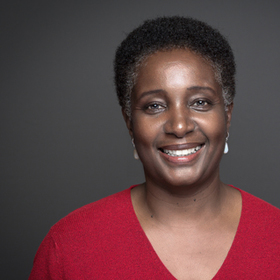by Glenda Clare •
Shared parenting was my goal when I decided to assume the custody of my cousin’s youngest child. To be supportive, I accompanied my cousin to Child and Family Team (CFT) meetings and paid for required drug testing. In my head, I was singing Sister Sledge’s “We Are Family.” I knew everything was going to be alright if we worked together. Foster care placement immediately stopped when I brought my younger cousin home to live with me.
A family’s dynamics are forever changed when a child goes to live with a relative.
I quickly learned that families are complicated. Family members share a history. A family’s dynamics are forever changed when a child goes to live with a relative. Instead of the role of grandma, sister, brother, aunt, uncle, or in my case, cousin, family members assume the role of the parent in the life of their relative’s child. Boundaries are crossed, and loyalties are questioned.
Within two weeks of my assuming custody, my older cousin cut off all communication. She refused to answer the phone when her daughter and I called. She would not respond to letters. Other family members accused me of stealing her child. I didn’t understand why the good I thought I was doing was going wrong. My intention was for us to work as a family to parent my cousin’s child.
A grandfamily peer had a similar experience with her daughter regarding the parenting of her grandson. Although her daughter tried, she was unable to parent her son due to her mental health challenges. After years of frustration, the family decided to plot another course. As a family, they decided to rid themselves of hurt feelings and past disappointments and work together to create better outcomes for everyone in the family.
It must be said that DSS involvement usually results in anxiety for everyone in the family. Everyone—children/youth, birth parents, prospective relative parents (as well as other extended family members), have feelings about the prospect of a family member entering the foster care system. Emotions can include loss, anger, guilt, jealousy, resentment, loyalty, and competition. If it is to be effective, shared parenting in the biological family system requires work.
While there are significant benefits to shared grandfamily parenting, it is important to be aware of potential challenges such as:
- Initial feelings of anger or resentment by the birth parent. Anger may be an expression of grief and viewing the relative parent as a threat to the birth parent’s personal relationship with the child.
- Children feeling conflicted loyalties to both their relatives and birth families.
- Potential safety risks for the child or the relative parent, depending on the situation.
- A change in a child’s behavior before or after a visit with the birth parent, as a result of coping with stress or feeling triggered by past trauma.
- Relative parents disliking what the birth parent did (or let others to do) to the child.
Sometimes, there is a need for outside assistance. Family mediation services from an unbiased provider may offer an opportunity for all involved to have a frank discussion about the issues at hand. Although it may feel embarrassing, there is a need for the family to understand the reason for child welfare involvement. Working together, the family can create an effective process (e.g., family group decision making) to resolve issues of concern in a way that promotes the well-being of everyone.
Glenda Clare is NC representative to the Generations United National GRAND Voices Network, a Family Partner Specialist at the Center for Family and Community Engagement at NC State Univ., and a former kinship caregiver.


